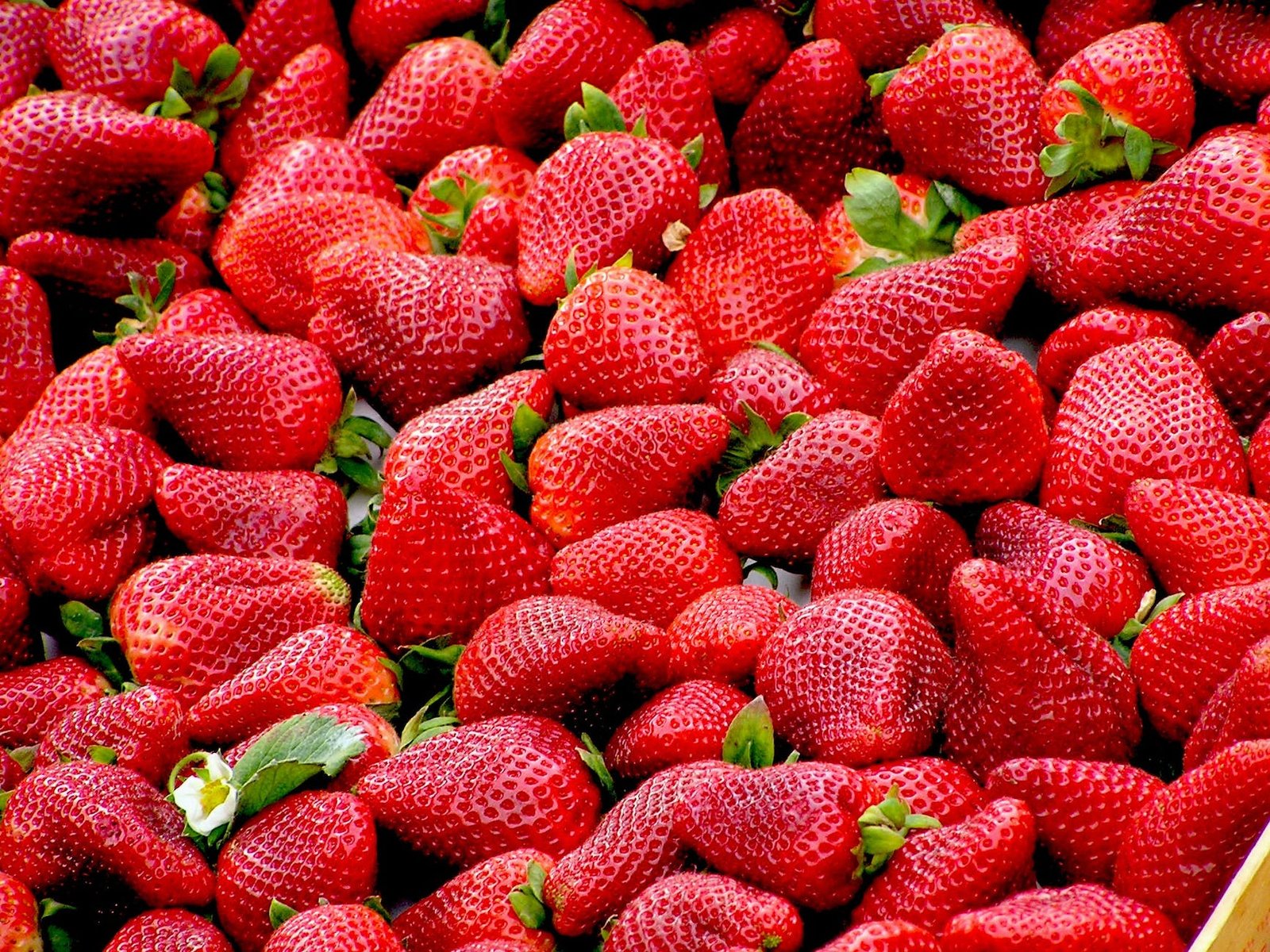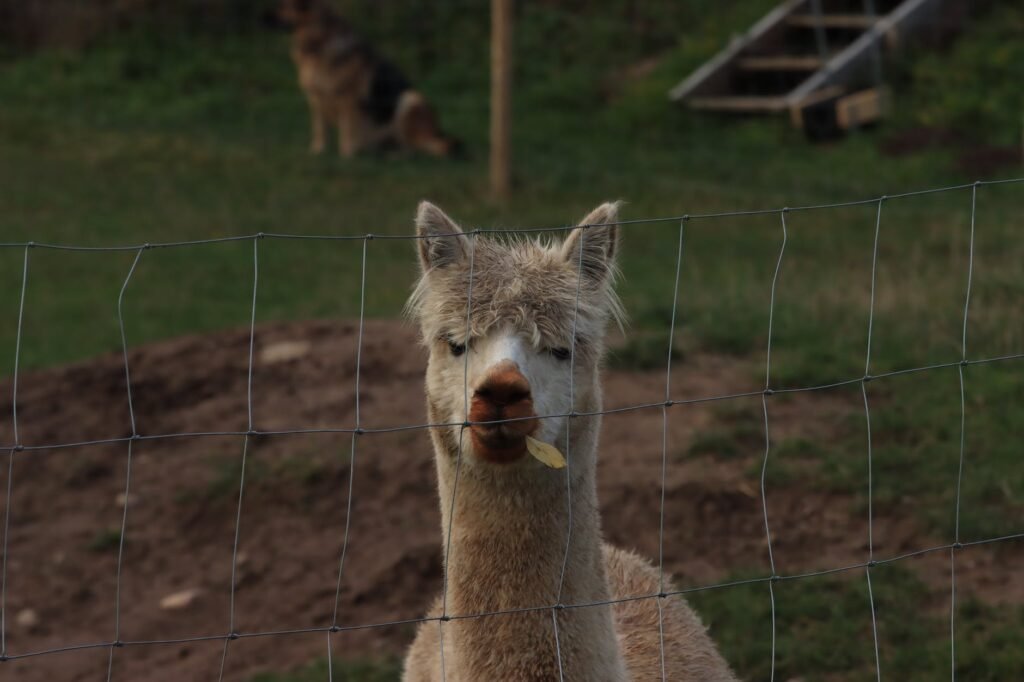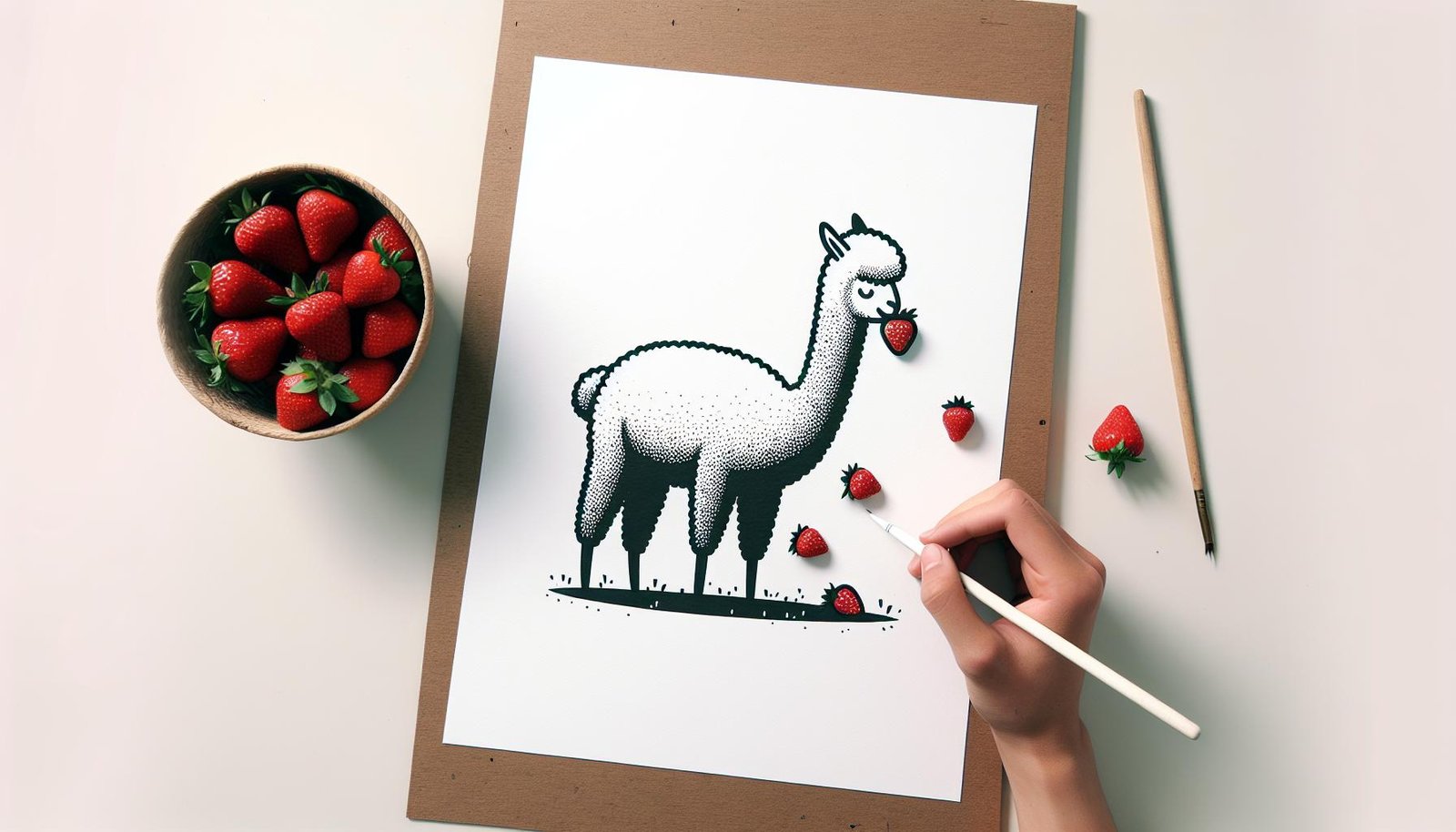Feeding Strawberries to Alpacas: Healthy Treat or Tasty Trouble?
Ever wondered what’s on the menu for alpacas? Well, you’re not alone. It’s a common question, particularly for those who’re considering adding these adorable creatures to their family. One food often brought up is strawberries. But do alpacas like strawberries?
Sure, strawberries are a sweet treat for us humans. We love them in our salads, desserts, and even just as a snack. But does this love for strawberries extend to alpacas? That’s what we’re here to find out.
Key Takeaways
- Alpacas are herbivores, primarily grazing on grass and hay, digesting plant-based nutrients efficiently due to a specially adapted digestive system. They occasionally consume fruits and vegetables as nutritional supplementation.
- Strawberries are nutrient-rich fruits, containing vitamins like Vitamin C, folate, minerals like manganese, potassium, and are also high in fiber. They also have a natural sugar content and are high in water, making them potentially hydrating.
- Alpacas possess a unique three-compartment stomach, making them pseudo-ruminants and letting them extract large amounts of nutrients from relatively low-quality grazing.
- Whether an alpaca likes strawberries varies on an individual basis. While not harmful per se, feeding strawberries in excess could potentially disrupt an alpaca’s digestive system due to its high sugar content.
- The health benefits of strawberries for alpacas include providing a nutritional boost and offering a change from their regular grazing, but they can also lead to weight issues and upset the digestive system if consumed excessively.
- Moderation is key when incorporating strawberries into an alpaca’s diet, balancing these fruits with their regular intake of grass and hay.
Alpacas’ natural diet
Diving deeper into alpacas’ preferences, it’s critical that we first understand their natural diet. Alpacas are herbivores, meaning their diet primarily consists of plant matter. They graze on a vast selection of vegetation which includes but is certainly not limited to grasses and hay.

Their digestive system is uniquely adapted to break down cellulose, a component found in most plant tissues. It’s like nature designed them to be efficient, low impact lawn mowers. These plucky animals spend most hours of daylight chewing cud to extract as much nutrition as possible from their food.
Feeding Habits
Alpacas have a low caloric need compared to other animals of the same size. They’re like the fuel-efficient hybrid cars of the animal kingdom. Typically, alpacas consume 1.5% to 2% of their body weight daily in hay or grass.
For nutritional supplementation, they occasionally nibble on fruit, vegetables, wood, bark, or stems. It’s worth noting that their dietary habits might adapt to their living conditions. For instance, those living in arid or barren areas may be seen to have a dietary preference towards more resilient vegetation.

However, the main query we are still grappling with is that of strawberries and alpacas. Would these furry, long-necked creatures enjoy a red, juicy strawberry if given the chance? While we know they may sample fruits and vegetables occasionally, it’s now time to delve into the strawberry question head-on. Are strawberries a hit or miss in the alpaca world?
Stay tuned as we attempt to crack this mystery in our next section while keeping in mind the lessons we’ve learned about the Alpacas’ natural food habits.
The nutritional value of strawberries
As a passionate alpaca advocate, it’s crucial for me to ensure these magnificent animals get the right balance of nutrients. When discussing a potential treat like strawberries, we need to understand its nutritional value first. So, what do strawberries offer in terms of nutrition?
Strawberries are a powerhouse of vitamins and minerals. They’re loaded with vitamin C, manganese, folate (vitamin B9), and potassium. They are high in antioxidants which can improve heart health and control blood sugar levels. Another worth-mentioning trait of strawberries is their fiber content which aids in digestion.
Based on weight, the nutritional content of strawberries is striking. Let’s break it down in a simple format:
| Nutrient | Amount per 100g |
|---|---|
| Calories | 32 |
| Vitamin C | 59.0 mg |
| Manganese | 0.386 mg |
| Folate (Vitamin B9) | 24 µg |
| Potassium | 153 mg |
| Fiber | 2g |
Of course, it’s important to note that while these nutrients are beneficial for general health, the needs and reactions of alpacas may differ from humans. Subsequently, the impact these nutrients have on alpacas might vary.
Notwithstanding this, strawberries aren’t just about the healthy stuff. They also contain natural sugars. The sugar content in strawberries is comparatively low compared to other fruits. It’s the natural sweetness that tempts many to bite into this juicy fruit.
What’s more, strawberries are chock-full of water. With water content as high as 91%, they can help provide hydration.
To have a better understanding of whether strawberries are a decent nibble for alpacas or not, looking into how these nutrients affect alpacas would be a wise step. With the information available on the nutritional composition of strawberries, we’re well-equipped to assess their suitability for alpacas. Please stay tuned as we delve deeper.
Do alpacas eat strawberries?
Springing from the strawberry’s nutritional profile, it’s crucial to look at alpacas’ dietary habits in relation to this subject. I’ve found that the habits can indeed be quite interesting.
Alpacas, historically grazers by nature, typically prefer grass, hay, and leaves. They’ve evolved over centuries to thrive best on a diet that primarily consists of these materials. This isn’t entirely restrictive, though. On occasion, they’ll indulge in fruits and vegetables as part of their diet. In these instances, the impact strawberries can have on an alpaca’s health becomes a focal point.
Digestive System of Alpacas
For context, alpacas have a unique digestive system. They are pseudo-ruminants, which means they have a three-compartment stomach. This type of system allows them to extract maximum nutrients from relatively low-quality grazing.
So, is there room for strawberries in this diet? It’s evident alpacas have a robust and versatile system, but considering the sugary content strawberries naturally have, is it suitable?

I delved into the research looking for answers. In general, it’s safe to feed alpacas fruits and vegetables in moderation. They gain benefit from the vitamins and minerals these provide. However, their bodies are not designed to process a high sugar diet.
What About Strawberries?
When it comes to strawberries, opinions are mixed. Some folks have reported their alpacas savoring the tasty fruit. Yet, others note indifference. There’s no definitive answer here, as dietary preferences can vary among alpacas.
As a note of caution, too many fruits, strawberries included, can potentially upset the balance of their unique digestive system. Consequently, a diet high in fruits is generally discouraged. Lower quantities served as rare treats might not pose significant issues.
| Diet Element | Proportion |
|---|---|
| Grass, hay and leaves | High |
| Fruits & Vegetables | Rare treats |
| Strawberries | Limited |
Intriguing, isn’t it? Possessing newfound knowledge on whether alpacas eat strawberries, let’s explore deeper into the impacts these dietary elements can have on the fiber production of alpacas, a significant reason why these creatures are treasured worldwide.
Benefits and risks of feeding strawberries to alpacas
Understanding the benefits and risks tied to feeding strawberries to alpacas is crucial. It’s not simply about popping a juicy strawberry into their mouths and hoping it’s okay. Alpacas’ hay-dominated diet ensures their digestive system functions optimally. Introducing a high sugar fruit like strawberries should be navigated with awareness.
Benefits
For starters, strawberries offer a different flavor profile, acting as a refreshing change from their regular diet. They’re also loaded with essential nutrients like vitamin C and antioxidants. These nutrients boost alpaca’s immune system and promote general health. Here’s a quick review of the nutrients found in strawberries:
| Nutrient | Quantity Per 100g |
|---|---|
| Vitamin C | 59mg |
| Sugars | 4.9g |
| Fiber | 2g |
| Protein | 0.7g |
Risks
But it’s not all positive when it comes to feeding strawberries to alpacas. Since strawberries contain sugars, excessive consumption can lead to a slew of health issues:
- Disruptive digestive issues: Alpacas evolved as herbivores, geared towards a diet high in grasses. A diet too high in sugar can destabilize their digestive track, leading to issues like bloating, diarrhea, and worse.
- Weight gain: Just like us humans, an overindulgence in sugars can lead to weight gain in alpacas. Obesity isn’t a joke for them and can lead to further health complications.
It’s clear that while strawberries aren’t harmful per se, they should be incorporated into alpacas’ diet in moderation. When balanced with their regular diet, strawberries can indeed be a delight for some of these lovely creatures. In the next section, we’ll examine the recommended quantity of strawberries an alpaca should consume.







One Comment
Our picks
Alpaca & Wool Felted Sole Inserts: Comfy Upgrade?
Best Alpaca Socks for Hiking: Ultimate Comfort and Durability on Trails
Best Alpaca Halter for Comfort and Control